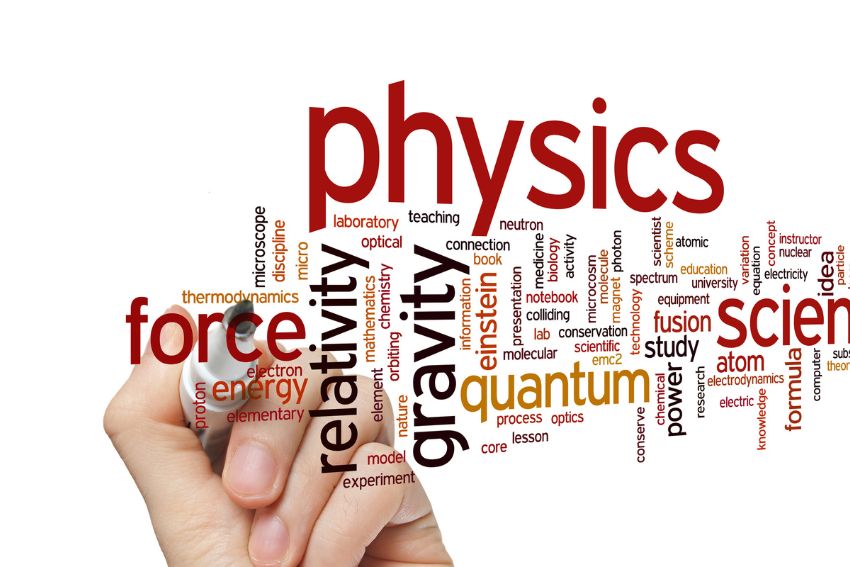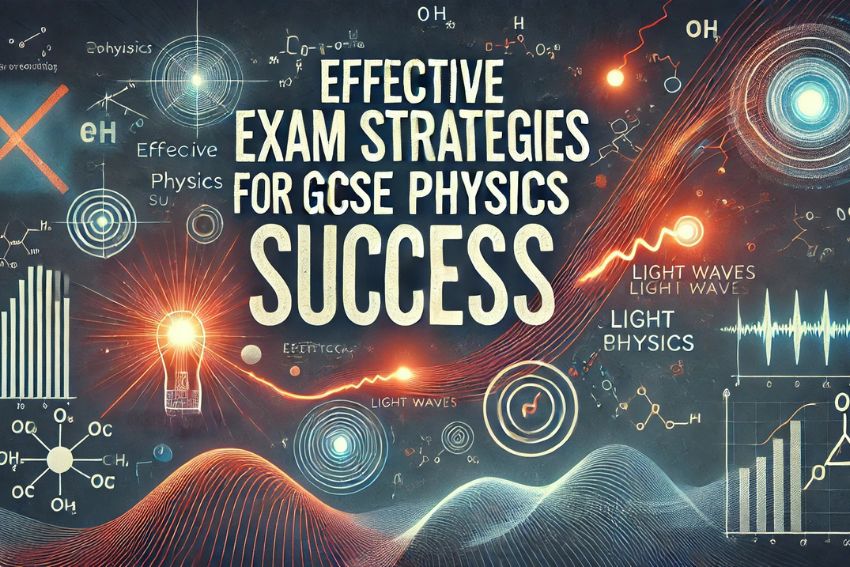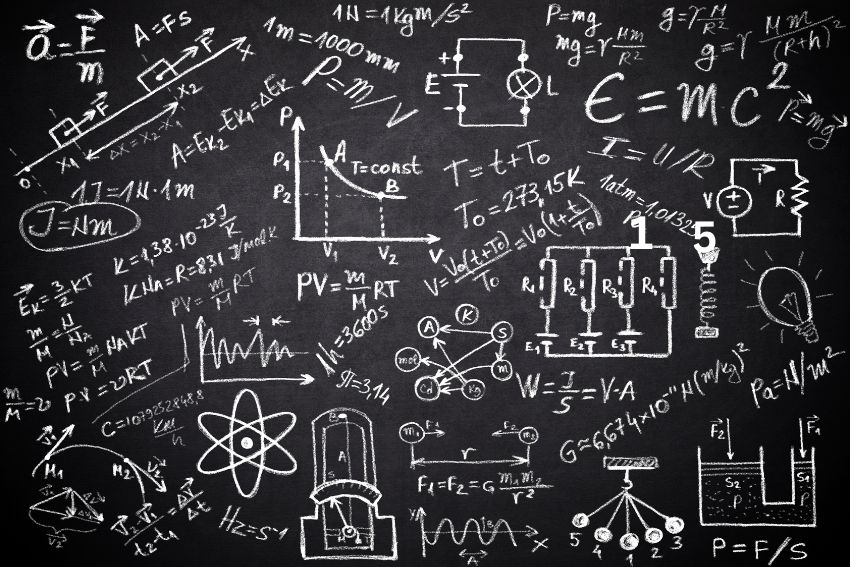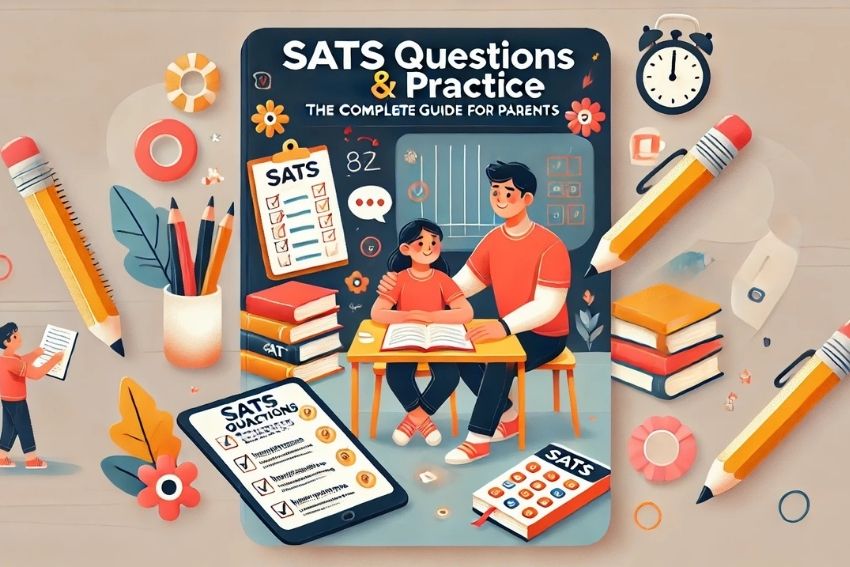How to Get a Grade 9 in GCSE Physics: Proven Study Methods for Success
Curious about how to get a Grade 9 in GCSE Physics?- it might sound like a tough challenge, but it’s absolutely possible with the right approach. Many students wonder, How hard is it to get a Grade 9 in GCSE Physics? The truth is, physics can feel tricky at times, especially with all the formulas, concepts, and calculations. However, with smart revision and exam strategies, you can turn it into one of your strongest subjects.
Success in GCSE Physics isn’t just about memorising equations-it’s about understanding how to apply them. You need to break down complex ideas, practise problem-solving, and master exam techniques. The good news? With consistent effort and the right methods, you can boost your confidence and tackle even the most challenging questions.
In this guide, we’ll cover how to get a Grade 9 in GCSE Physics step by step. From effective revision techniques to exam strategies and past paper practice, you’ll learn exactly what it takes to achieve top marks. Ready to take your physics skills to the next level? Let’s get started!

GCSE Physics Exam Format: Challenges & How to Overcome Them
Before you start revising, it’s important to understand how the GCSE Physics test is structured. Knowing what to expect will help you feel more confident and plan your revision effectively.
GCSE Physics is assessed through two exam papers, each covering different topics. Both papers include a mix of multiple-choice, short-answer, and long-answer questions. Some questions require you to recall facts, while others test your ability to apply formulas and explain scientific concepts. You’ll also need to interpret graphs, analyse data, and show how physics principles work in real-life situations.
Many students ask, “Is GCSE Physics hard?” The difficulty depends on how well you prepare. Some topics, like electric circuits, forces, and radiation, can feel complicated at first. Others, such as equations and calculations, require strong problem-solving skills. But the good news is that with consistent practice, clear explanations, and plenty of past paper questions, you can master even the trickiest topics.
One of the best ways to overcome challenges is to break topics into smaller sections and focus on understanding the key principles before moving on. If a concept feels confusing, use revision guides, online videos, or ask your teacher for help. Physics is all about applying knowledge, so practising different question types will make a huge difference.
Now that you understand the exam format, let’s explore the best study techniques to help you get a Grade 9 in GCSE Physics.

GCSE Physics Revision Tips: Effective Study Methods for Top Grades
So, how to get a Grade 9 in GCSE Physics? For GCSE Physics Success- you need more than just memorising facts. You must understand key concepts, apply formulas correctly, and develop strong problem-solving skills. Using the right GCSE Physics revision tips will help you retain information better and feel more confident when tackling exam questions.
One of the best effective study methods for GCSE Physics is active recall. Instead of just reading notes, test yourself regularly by summarising topics in your own words. Flashcards are great for memorising equations, while past paper questions help you apply your knowledge. The more you retrieve information from memory, the stronger your understanding becomes.
Another powerful technique is note-taking with visual aids. Try creating mind maps, diagrams, and flowcharts to connect different physics concepts. This makes it easier to understand relationships between topics like forces, energy, and motion. Writing key equations next to relevant concepts will also help you recall them quickly during exams.
Mastering physics equations is crucial. Instead of just memorising them, practise rearranging and applying them in different situations. Many exam questions require multiple steps, so understanding how equations fit together will improve your problem-solving skills.
Finally, practise regularly under timed conditions. Solving past papers and exam-style questions will help you get used to different question formats and improve your speed. The more you practise, the more confident you’ll feel in the real exam.
How to Get a Grade 9 in GCSE Physics with Past Papers Practice
One of the best ways to improve your exam performance is by using GCSE Physics past papers practice. If you’re wondering how to get a 9 in GCSE Physics, past papers are essential. They help you understand question formats, improve time management, and develop strong exam techniques.
Start by completing GCSE Physics Past Papers under timed conditions. This will help you get used to answering questions quickly and managing your time well. Treat each paper like a real exam to build confidence.
After finishing a paper, always check your answers using the mark scheme. Examiners look for specific key points in your responses, so understanding how marks are awarded will help you refine your answers.
If you make mistakes, don’t just move on. Take time to analyse what went wrong and focus on improving those areas. Identify patterns in your errors-are you losing marks on calculations, explanations, or specific topics?
Revisiting past papers and practising tricky questions repeatedly will strengthen your understanding and boost your confidence. The more you practise, the more prepared you’ll feel on exam day.

Developing Effective Exam Strategies for GCSE Physics
Even with strong subject knowledge, GCSE Physics exam strategies play a huge role in securing top marks. Understanding how to approach different question types will help you answer efficiently and avoid common mistakes. If you’re wondering how to get a Grade 9 in GCSE Physics, mastering exam techniques is just as important as revising content.
How to Get a Grade 9 in GCSE Physics: Multiple-Choice Questions
So, How to Get a Grade 9 in GCSE Physics with Multiple-Choice Questions? These questions may seem simple, but they can be tricky. Read the question carefully and eliminate incorrect answers before selecting the best option. If you’re unsure, make an educated guess-there’s no penalty for guessing in GCSE Physics.
How to Get a Grade 9 in GCSE Physics: Calculation-Based Questions
Calculation-based questions require accuracy and a clear method. Always show your working, even for simple equations. Marks are awarded for method as well as the final answer. Use the correct formulas, include units, and check your answer for accuracy. If you’re asked to round your answer, make sure it follows the required decimal places or significant figures.
Tackling Long-Answer Questions in GCSE Physics
How to Get a Grade 9 in GCSE Physics with Long-Answer Questions? They require detailed explanations. Structure your response logically, using scientific terminology and breaking your answer into steps. A strong response should define key concepts, explain relationships, and apply them to the question. If calculations are involved, make sure your working is clear and follows a logical process.
Approaching Practical-Based Questions in GCSE Physics
How to Get a Grade 9 in GCSE Physics with Practical-Based Questions? Physics exams often include questions on experiments, data interpretation, and evaluation of methods. Revise common practicals from your syllabus, such as specific heat capacity, circuit experiments, and Hooke’s Law. Be prepared to explain variables, experimental improvements, and how to interpret graphs.
How to Get a Grade 9 in GCSE Physics: Manage Time and Stress Effectively
Preparing for GCSE Physics can feel overwhelming, but managing your time well will make revision easier. To achieve top grades in physics, you need a structured study plan, stress management techniques, and consistent revision.
Creating a Study Timetable for GCSE Physics
A well-planned GCSE Physics study timetable helps you cover all topics without last-minute stress. List topics by difficulty and focus more on weaker areas. Schedule regular revision sessions, using a mix of past papers, flashcards, and problem-solving exercises. Short, focused sessions are far more effective than last-minute cramming.
Stress is common, but staying organised can help. Take regular breaks, exercise, and get enough sleep to stay focused. Using active revision techniques-such as summarising key concepts or explaining topics aloud-will improve understanding. Setting small goals and rewarding yourself after completing tasks keeps motivation high.
How to Get a Grade 9 in GCSE Physics Without Last-Minute Pressure
Cramming the night before rarely works. Instead, spend the final days reviewing GCSE Physics past papers, revisiting equations, and practising high-mark questions. Focus on GCSE Physics exam strategies to improve accuracy and time management.
By staying organised and managing stress effectively, you’ll feel confident and prepared to achieve top grades in physics. Next, let’s wrap up with final tips for success.
Conclusion
Thus, How to get a Grade 9 in GCSE Physics comes down to smart revision, effective exam strategies, and consistent practice. By using the right GCSE Physics exam strategies, managing your time well, and regularly completing GCSE Physics past papers practice, you can build confidence and improve your performance.
Success in GCSE Physics isn’t about last-minute revision-it’s about understanding key concepts, applying formulas correctly, and refining your exam technique. Practising different question types, reviewing mark schemes, and focusing on weaker areas will help you gain the skills needed to get Grade 9 in GCSE Physics.
If you need extra support, working with online GCSE Physics tutors can provide personalised guidance. Tutors can help clarify difficult topics, improve problem-solving skills, and provide targeted exam preparation.
Stay consistent, practise actively, and use the right resources. With the right approach, achieving a Grade 9 in GCSE Physics is within your reach!
FAQs
How to get a Grade 9 in GCSE Physics?
To get a Grade 9 in GCSE Physics, follow these steps:
- Use GCSE Physics exam strategies – Develop time management skills and structured answers to maximise marks.
- Master the syllabus – Ensure you understand every topic in depth.
- Use active recall – Test yourself with flashcards and practice questions.
- Practise past papers – Complete GCSE Physics past papers practice under timed conditions.
- Understand mark schemes – Learn how examiners award marks and apply it to your answers.
What percentage is a 9 in GCSE Physics?
The percentage required for a Grade 9 in GCSE Physics varies each year, depending on grade boundaries. However, it is usually around 80-90%. Since grade boundaries are set after exams are marked, it’s best to aim for high accuracy in both papers and focus on exam technique to maximise marks.
How hard is it to get a 9 in GCSE Physics?
Achieving a Grade 9 in GCSE Physics is challenging, but it’s definitely possible with the right approach. The subject requires strong problem-solving skills, a deep understanding of key concepts, and excellent exam technique. Many students find the calculations and application-based questions difficult, but consistent revision, practising past papers, and using effective study methods can make a huge difference.
What are the best study techniques for GCSE Physics?
The best study techniques for GCSE Physics include active recall, spaced repetition, and problem-solving practice. Instead of just reading notes, try explaining concepts aloud, using mind maps, and applying formulas to past paper questions. Regularly reviewing topics and self-testing will reinforce your understanding.
Are online GCSE Physics tutors helpful for getting a Grade 9?
Yes! Online GCSE Physics tutors can provide personalised support, clear explanations, and structured revision plans. They can help break down difficult topics, improve problem-solving skills, and give targeted feedback on exam technique. If you’re struggling with specific areas, a tutor can be a great way to boost your confidence and performance.








